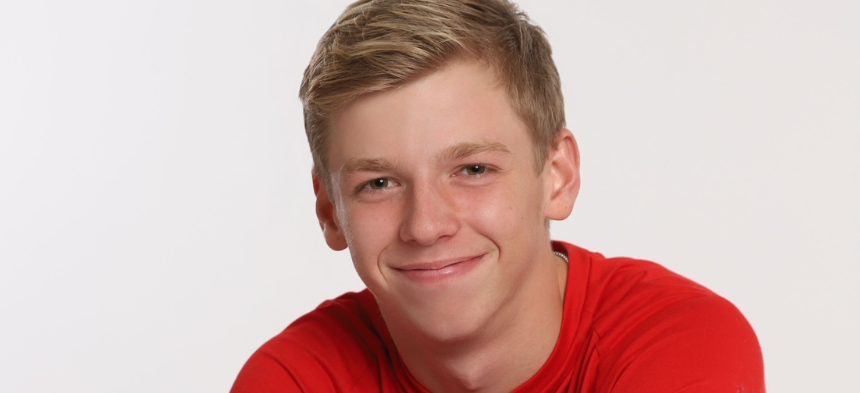What Near-Death Taught Me About Resilience
Teen Advisory Group (TAG) member Liam O’Grady-Walsh explains how having food allergies taught him about resilience.

It was the best breakfast I ever had, until it almost killed me. The almond flour pancakes caused a nearly fatal allergic reaction along with a hospital ICU admission. From this horrific experience, I learned that I could overcome any obstacle and produce positive outcomes.
After I devoured those buttery breakfast pancakes, my throat closed immediately. As I was gasping for air, my mom injected me with my epinephrine auto-injector. Soon thereafter, I started to experience additional severe symptoms, so my mom called 911 and an ambulance rushed me to the ICU. By the time I arrived there, I was covered in hives with plummeting blood pressure. It was then that I asked my mom if I was going to die, and I could see the fear in her eyes. In the ICU, I was hooked up to countless cords, tubes, and wires that monitored every heartbeat and breath. The doctors proceeded to give me over 50 IV medications before I started to show signs of recovery. In the process, I discovered what fighting for my life entails and that only I can impact my destiny. I also discovered that I want to help others learn how to overcome similar struggles.
My crisis wasn’t over when I walked out of the ICU—I would have additional lessons to learn. As is typical with anaphylaxis sufferers, I developed eating disorders and severe OCD. I became hypersensitive to any foods that could stick to my throat. I also became an obsessive hand washer to “protect” myself from allergens. Consequently, my parents and I decided that I needed a mental health specialist. My psychiatrist gave me tools to help me cope with the anxiety and OCD. My 11-year-old-self learned that I could find positives in any negative experience and use distractions, such as playing the piano, to calm myself.
I quickly discovered that these coping mechanisms are also great life skills and began to understand what resilience truly meant. Without the traumatic pancake experience, I would never become the resilient person that I am today.
I use the life skills I learned with my psychiatrist to combat other challenging obstacles. For example, I recently recovered from an orthopedic surgery and could not play varsity sports for a year. I chose to become a coach as a temporary substitute for my sports playing. I would not let this injury strip away my love for basketball and baseball, and I got to help younger athletes to improve.
I also helped fellow allergy sufferers in the same manner. The FARE National Teen Advisory Group (TAG) selected me to their national advisory group for four straight years. As a member of TAG I got to brainstorm ideas to help people who suffer with allergies. Additionally, I shared my experience as a National Institute of Health human test subject for research on allergies, which was a rewarding opportunity. I got to personally contribute to science and impact allergy outcomes for others.
Finally, Vanderbilt University’s PYT immersion mentorship program accepted me to study biomolecules and protein structures with other high school STEM students. I had the opportunity to study proteins that caused allergic reactions in humans, researched its properties and mutations, and determined how allergic reactions could be alleviated. As the culminating project, I got to take this research and run it through my Python code and present it to Vanderbilt professors and STEM classmates. Knowledge is power and this amazing research informed others how allergic reactions occur on a molecular level.
My pancake experience taught me how to positively influence my surroundings. I had the opportunity to immerse myself in research and outreach groups to help others manage their allergic reactions. I used my resilience to steer the effects of a terrifying experience to a positive course. In the process, I paved my own path for the future and helped others along the way.


